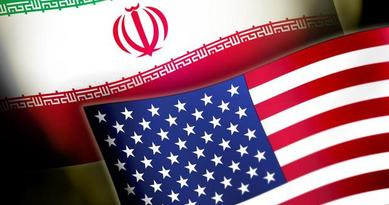From the Nuclear Dossier to Iran-US Negotiations

- At the present time, nuclear negotiations are not in a good state, meaning that they cannot reach a desirable conclusion.
- We can have an accurate assessment when, in practice, we reach a positive result. When we do not achieve positive results, we must change our policy; otherwise, if we continue the same policy again with no result, then it cannot be called diplomacy.
- The fact that negotiations have reached a deadlock and that we cannot achieve positive results in practice under these conditions means that there is a problem; hence, we must change our policy.
- One reason behind the deadlock in negotiations is the Americans, who do not give a clear and precise response to Iran's proposal.
- On the other hand, when Iran sees that this policy is non-responsive, it should offer a new proposal; because the present conditions are damaging Iran more than the other side.
- Due to its presidential election, the US has delayed discussions about Iran's nuclear issue until after the election. The US should have responded to Iran's proposal by now, but it has not taken any measures in this regard and it only claims that Iran should return to the negotiating table.
- Therefore, this issue indicates that we should review our policies and make some changes, for the continuation of the past trend is not in Iran's interests.
- There is no absolute matter in foreign policy and no policy should remain forever. Based on the present conditions, possibilities and capabilities, decisions should be made based on national interests, thus, what is important is providing the national interests of Iran.
- Therefore, at one time, it was necessary to negotiate with three countries, and later with five countries. What is important is to evaluate whether these measures were in line with national interests or not.
- Direct negotiations with the US have some conditions. In our country, this issue has become a taboo; this is while if these conditions are provided, direct negotiations can be done.
- If the US had suspended part of the sanctions, it could have been a good sign which could show that they intended to resume negotiations.
- The other issue is that we should differentiate between negotiations with the US and relations with this country. These are two different issues; this is while some consider negotiations with the US as establishing relations with the US. And this is wrong.
- The Supreme Leader, in his speech in Mashhad in 2010, stated that the conditions for negotiations with the US have not yet been provided, and whenever these conditions are provided, we will declare it ourselves. Therefore, any decision in this regard in Iran must be made by the Supreme Leader.
- It seems that first, in the US, there are differences of opinion with regard to how to deal with Iran, and second, they are waiting for the election results. Therefore, the conditions for direct negotiations between Iran and the US have not yet been provided.
- As I have stated before, since France, Britain, and Germany are just backgrounds for US policies, it is better for us to directly negotiate with the US, provided that the conditions are met.
- Now, under the worst conditions in which they have imposed sanctions against us and they assume that these sanctions have impacted our country, they intend to negotiate. We should assess what is in Iran's hands against them. Therefore, the conditions for negotiations must be provided.
- The West must first cancel part of the sanctions; 70% of these sanctions have been ratified beyond the realm of resolutions. What kind of negotiation is it if we must negotiate with them under conditions in which they are not willing to cancel part of these sanctions to show their good intention?
- I, as a political analyst, believe that, right now, Iran's hands are not tied in negotiations; but what is important is what the assessment of the person who is going to negotiate and decide is. Does he believe that Iran's hands are tied or not?
- I believe that if we sit at the negotiating table with the US right now, we can reach an agreement; provided that our road-map is accurately drawn and we know what we are after.
- Western media intends to promote the idea that sanctions have been effective. In my opinion, no catastrophe has happened yet and the media exaggerates this issue.
- I accept that, at the present time, our economy has problems in its structure and performance; but there has been no catastrophe. In my opinion, we should wisely review our actions and see where we have made mistakes.
- We should think about the measures that we can take to force the enemy to review its positions, so that it sits behind the win-win negotiating table.
- Our economy, with all its problems, is not a catastrophe for Iran which would necessitate concessions.
- I believe that we can reform our methods and review our past actions and correct our mistakes and use new tactics.
- In our diplomacy, we do not speak in a language with which the world can establish relations. We assume that it suffices to follow our own logic and make strong statements; this is while in today's world, you can have your own logic and defend it, but, at the same time, explain it for the public opinion in a way so that they could comprehend and establish relations with it.
- Sometimes, we speak in a manner in which it is not important what others think about us.

